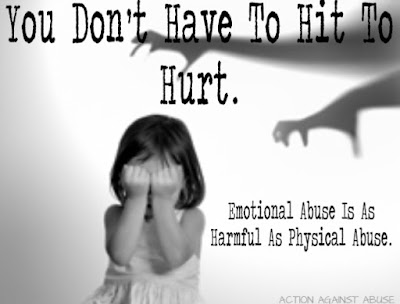People who know me well know that in addition to my passion for Doctor Who, I also have a
passion for the radio soap opera The Archers.
For those not living in the UK, The Archers is the worlds longest
running soap opera, having been broadcast since the mid 1950s. Its centred
around the fictional village of Ambridge, situated in the Midlands.
No. I haven’t suddenly decided to change
direction and make this a fan blog. The reason I am talking about this
programme is that there has been a long running story line highlighting the
increasingly abusive relationship between Helen Archer and Rob Titchner –
spoiler alert – that ended up with Helen stabbing Rob. Listening to the drama
unfold has been and continues to be (Rob didn’t die) an uncomfortable
experience as the realism and superb acting do hit home in an almost visceral
way. The script writers have done an excellent job, to the extent that the
listener did doubt whether she or he is reading too much into Robs behaviour
with Helen.
We are also confronted with abuse on a daily
basis via the media who frequently report on abusive incidents with so-called
celebrities and other popular cultural figure. We are shocked by, but get
increasingly desensitised to images of people being hit or shoved, called
degrading names or publicly cursed. However, these are overt examples of
abuse. It is a sad fact that abuse can
very well be underhanded, very subtle, and covert, often going unnoticed by all
except the victim - something that protects the abuser and, by its covert
nature, creates a state of confusion in the person on the receiving end as they
question whether they are being actually being abused.
Someone in such a relationship often feels as
though they are constantly walking on egg shells all the time, censoring their
actions and behaviours just in case there is subtle retribution.
Emotional or as it's also called, psychological
abuse occurs when a person in a relationship tries to control information
available to another person with intent to manipulate that person’s sense of
reality or their view of what is acceptable and unacceptable. Psychological
abuse often contains strong emotionally manipulative content and threats
designed to force the victim to comply with the abuser’s wishes.
All abuse takes a severe toll on self-esteem.
The scary fact is that this leaves wounds and scars that are unseen by others,
yet painfully born by the victim. The abused person starts feeling helpless and
possibly even hopeless. In addition, most mental abusers are adept at
convincing the victim that the abuse is his/her fault. That somehow they are
responsible for what happened.
Something that the relationship
between Rob and Helen in The Archers has highlighted has been a more
sophisticated form of psychological abuse that is often referred to as
“gaslighting.”
This term comes from the 1938 stage play Gas Light, in which a husband attempts
to drive his wife crazy by dimming the lights (which were powered by gas) in
their home, and then he denies that the lights have changed when his wife
points it out. It is an extremely effective form of emotional abuse that causes a victim
to question their own feelings, instincts, and sanity, which gives the abusive
partner a lot of power (and abuse is
about power and control).
Once an abusive partner has broken down the victim’s ability to trust their own
perceptions, the victim is more likely to stay in the abusive relationship. Gas
lighting is subtle and not obvious to others outside the relationship -
something that goes a long way to protecting the abuser.
Examples may range simply from the
abuser denying that previous abusive incidents ever occurred to staging bizarre
events with the intention of confusing the victim. A typical example would be: “but
darling, you must remember. I did tell you that yesterday” (said in the full
knowledge that nothing I fact was said).
Luckily in the UK a new offence of emotional abuse and controlling
behaviour has been introduced by the government and has entered in to law. The government has also updated its definition of domestic violence
now recognises the impact of threatening behaviour and now protects in law. The
government definition of domestic violence and abuse is now:
“any incident or pattern of
incidents of controlling, coercive, threatening behaviour, violence or abuse
between those aged 16 or over (below - child protection act) who are, or have
been, intimate partners or family members regardless of gender or sexuality.
The abuse can encompass, but is not limited to:
·
psychological
·
physical
·
sexual
·
financial
·
emotional
Controlling behaviour
Controlling
behaviour is a range of acts designed to make a person subordinate and/or
dependent by isolating them from sources of support, exploiting their resources
and capacities for personal gain, depriving them of the means needed for
independence, resistance and escape and regulating their everyday behaviour.
Coercive
behaviour
Coercive
behaviour is an act or a pattern of acts of assault, threats, humiliation and
intimidation or other abuse that is used to harm, punish, or frighten their
victim.”
This now means that for the first time people
who control their partners through threats or by restricting their personal or
financial freedom, could face prison in the same way they do if they are
violent - and that could mean anything up to 5 years in prison.
Peter Mabbutt FBSCH
www.lcch.co.uk




